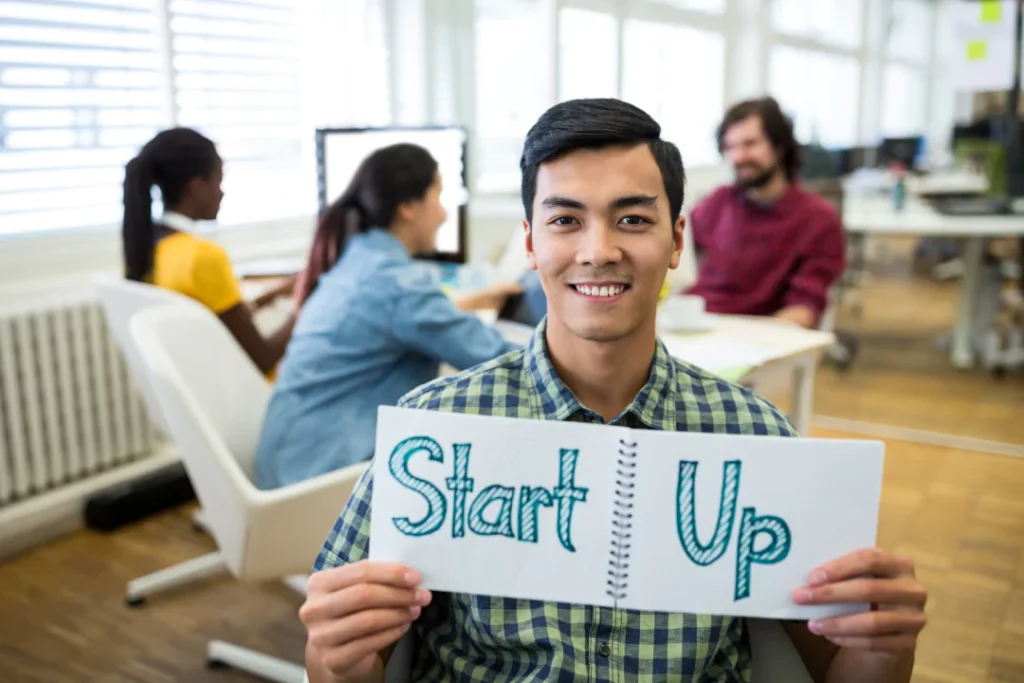The Indian startup ecosystem has picked up quite well and, in fact, is now among the most dynamic and fast-growing in the world. In the last decade, Indian entrepreneurs have founded a series of businesses that tap into global markets, depending on sectors ranging from fintech to deeptech and sustainability in the realm of healthcare. With governmental support, a deep pool of technical talent, and increased funding, India now boasts more than 100 unicorns, and the future for startups remains bright across the country.
Epicenter Sectors of Indian Startup Space

Fintech Fintech is one of the most vibrant sectors in India’s startup space. Companies like Paytm, Razorpay, and PhonePe have revolutionized digital payments and financial inclusion. Digital banking, lending, and investment platforms have all become really easy for millions through these startups. With financial education reaching rural areas, the fintech space has experienced unprecedented growth and remains an attractive space for both local and international investments.
E-commerce and D2C The e-commerce boom is a massive success story in itself. Companies like Flipkart, Myntra, and Meesho have changed the way Indians shop. More recently, the Direct-to-Consumer (D2C) brands have started thriving, where direct interactions with the consumer reduce the costs of manufacturing that has to be passed on to the consumers, and niche startups like Mamaearth and Lenskart would be in direct relations with any segment which they want to service and at the same time increasing their market reach.
In fact, AI and deeptech startups are in great demand of late. Deeptech refers to innovations found in areas like robotics, IoT, drones, and blockchain. Two firms already at the leading edge in this area are SigTuple and GreyOrange, using AI solutions to solve long-standing problems in health care, logistics, and manufacturing.
Cleantech and Sustainability The growing demand for sustainability in all industries around the world has led Indian cleantech start-ups to come with innovative methods to prevent climate change. Cygni and ReNew Power represent companies doing work in renewable energy, electric mobility, as well as reducing carbon emission. Investments in the cleantech sector are picking up steam as both the private and the public sectors work for a more green economy.
Edtech With the COVID-19 pandemic, the ed-tech sector alone has emerged as one of the fastest-growing sectors in India. Startups such as Byju’s and Unacademy brought a revolution in how students learn through interactive and engaging educational content online. Indian ed-tech today explores global markets, and there is increased focus on professional up-skilling and technical training.
Government Support and Policies

In fact, the Indian government has been a great votary of the startup ecosystem through a host of initiatives. Since its launch in 2016, the Startup India initiative has provided tax benefits, ease of business registration, and government-backed funding to budding entrepreneurs. Further, the Digital India program has helped push tech-based solutions to rural areas and brings more opportunities for startups to reach untapped markets.
Atal Innovation Mission is yet another milestone policy, which creates an ideal innovation ecosystem. There are incubation centers and innovation hubs coming up in schools and universities so that future entrepreneurs may be developed from very early ages.
Role of Investors:
Indian startups have garnered tremendous levels of support from both local and international investors. Indian startups raised billions of dollars in venture capital in 2023, specifically in the fintech, deeptech, and SaaS sectors. Big players such as Sequoia Capital, Tiger Global, and SoftBank have gone about actively investing in Indian startups, often turning them into unicorns overnight.
Over the past few months, there has been a growing participation of domestic investors and family offices in the funding spree, meaning much more confidence in the local market. The government-sponsored Fund of Funds for Startups (FFS) has even taken seed capitals to early-stage startups.
Challenges to Startups
Though Indian startups have been on a hot streak, there are a number of areas that call for attention:
Talent Retention: Though the nation is not short of talent, for a start-up to retain the best brains is always a challenge. With high competitive game and professionals preferring bigger corporations more carrots in the form of equity stakes need to be used in such cases.
Regulatory Hurdles: Regulations and the pace of policymaking sometimes represent an obstacle to fintech and deeptech. It typically requires arduous waiting amidst India’s bureaucracy.
Market Over-Saturation: In e-commerce or edtech business, saturation in the market is one of the concerns today. When it gets too intense, smaller-scale companies find it hard to scale and match up with large-scale leaders.
Access to Global Markets: Although Indian startups are extremely innovative, most of them face trouble in Internationalization. Different regulations, different cultures, and logistic issues make internationalization a tricky business.
Recent Trends in 2024
IG Drones raised $1 million for defense-based R&D projects, marking a hike in deeptech investments.
The cleantech segment is witnessing a massive push as global investors are now shifting their focus on sustainable technology.
PhysicsWallah, a giant in the edtech space, is readying itself for an IPO, which marks the maturation of India’s edtech market.
Thriving Ecosystem

The Indian startup ecosystem is innovation at its finest with resilience galore. Challenges, however, are few and far between. With strong governmental support and diverse funding options in conjunction with a techie population base, Indian startups will continue growing in the future. Fintech, deeptech, and sustainability are at the forefront and shine bright for the Indian startup future.
Even as India grows up to emerge into a global technology hub, startups are not just solving local issues but also global challenges, making the soil of this country fertile for entrepreneurial success.
Check out General knowledge of india
Contact for Website Design and Development, SEO and App Development – Chaturbhuja Tech Solution

